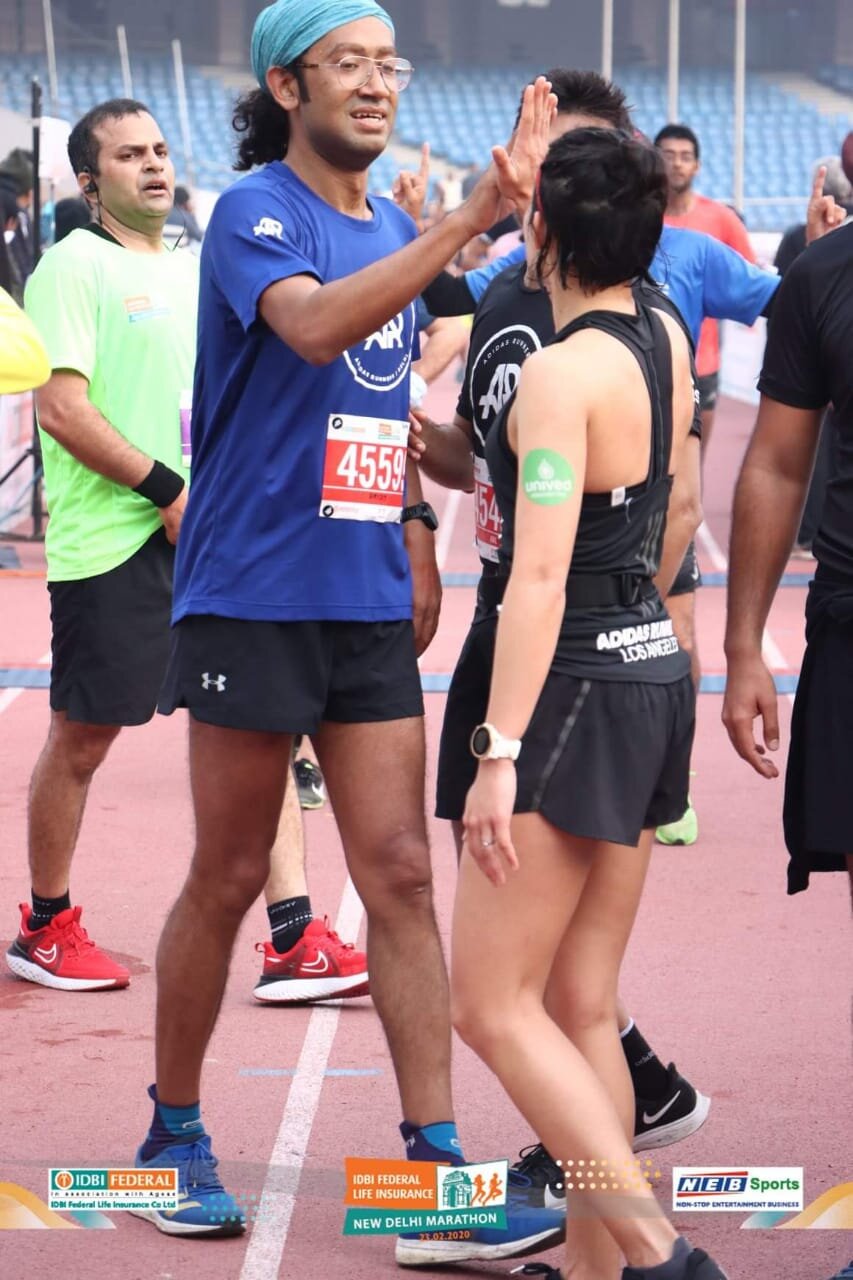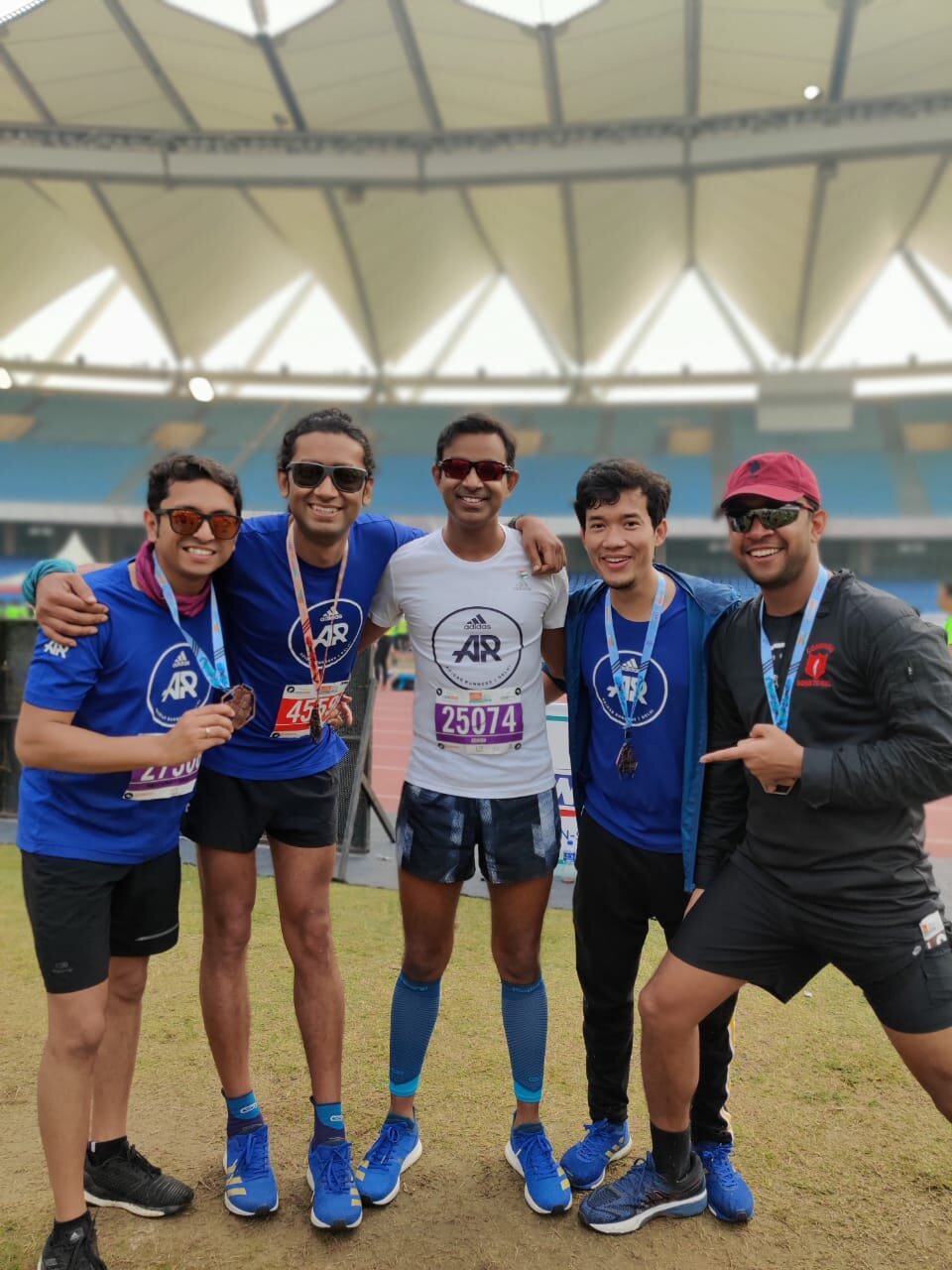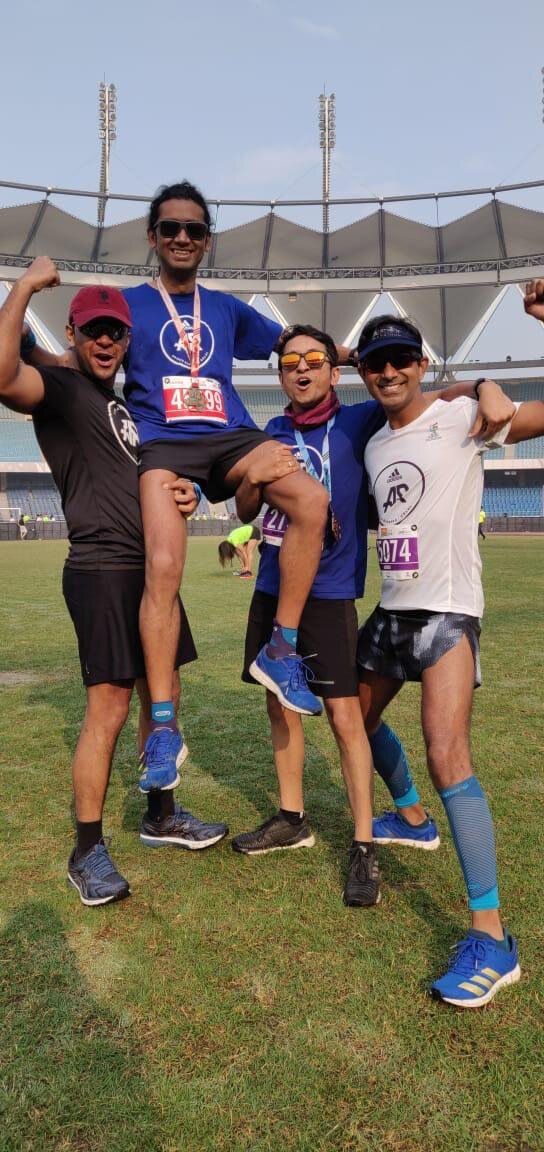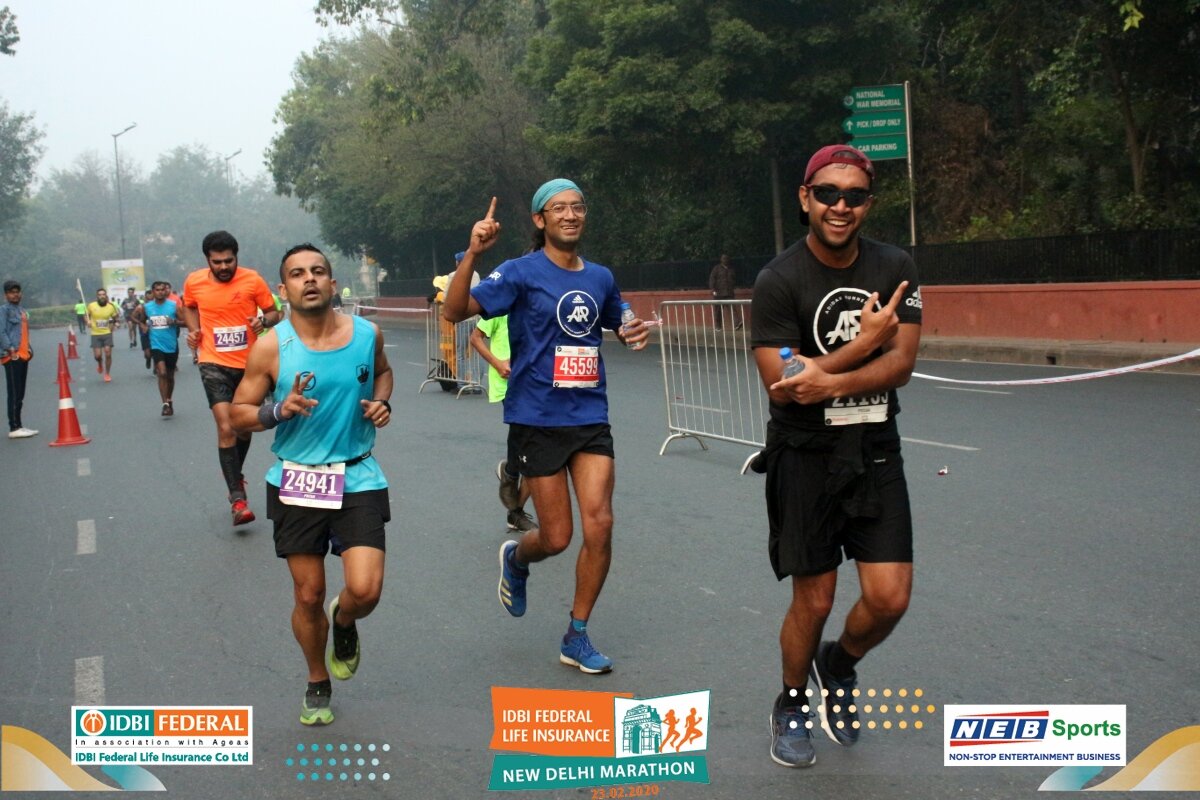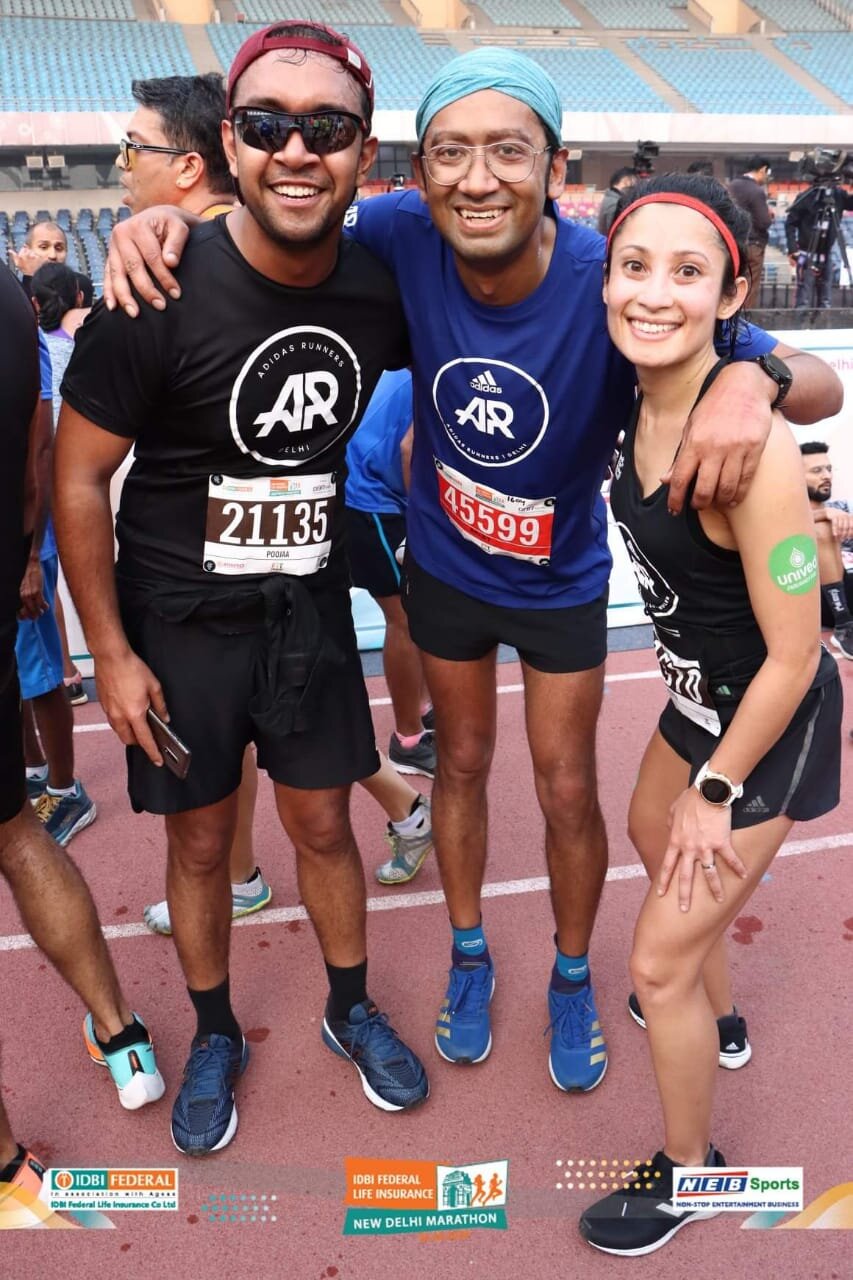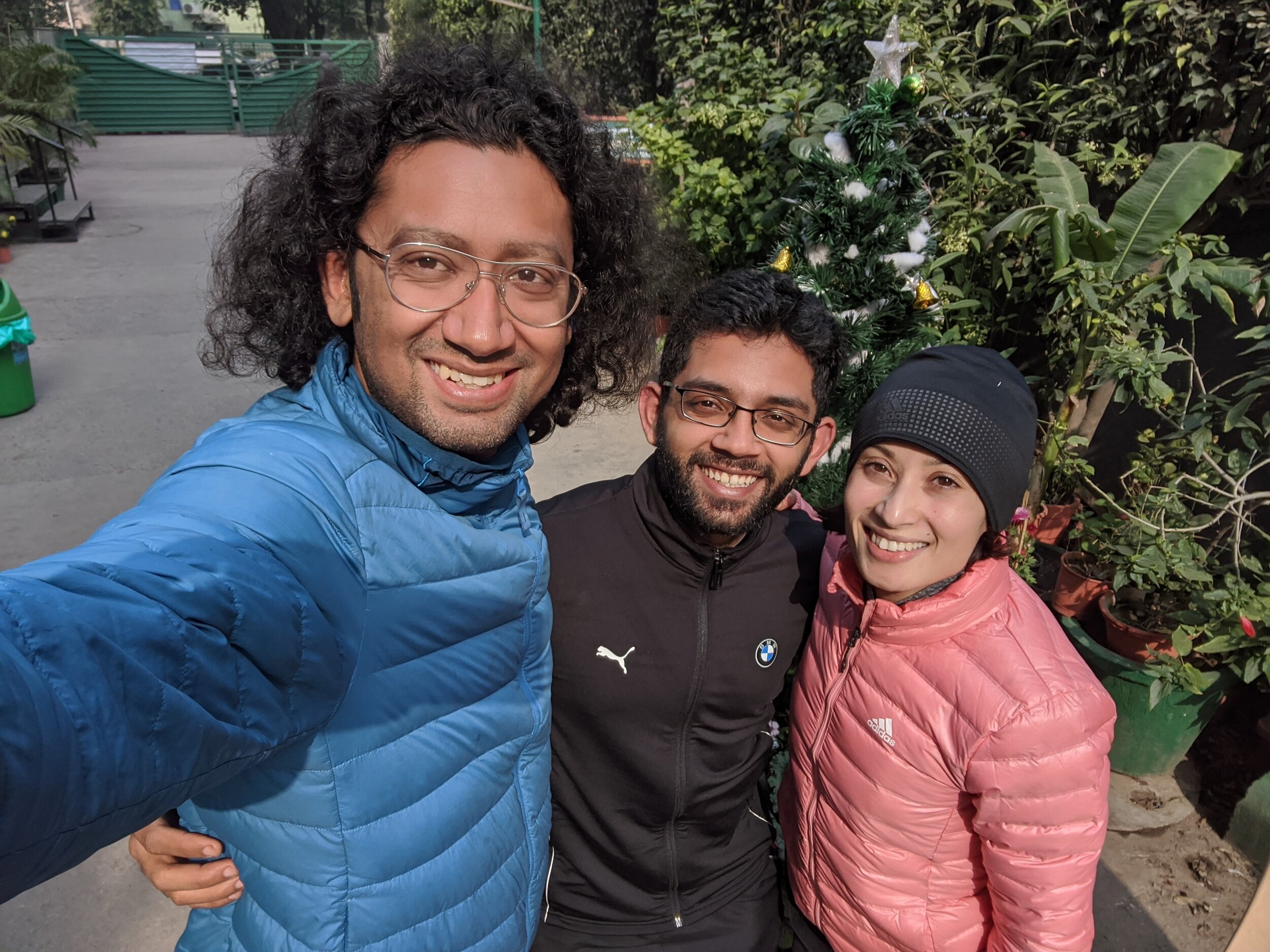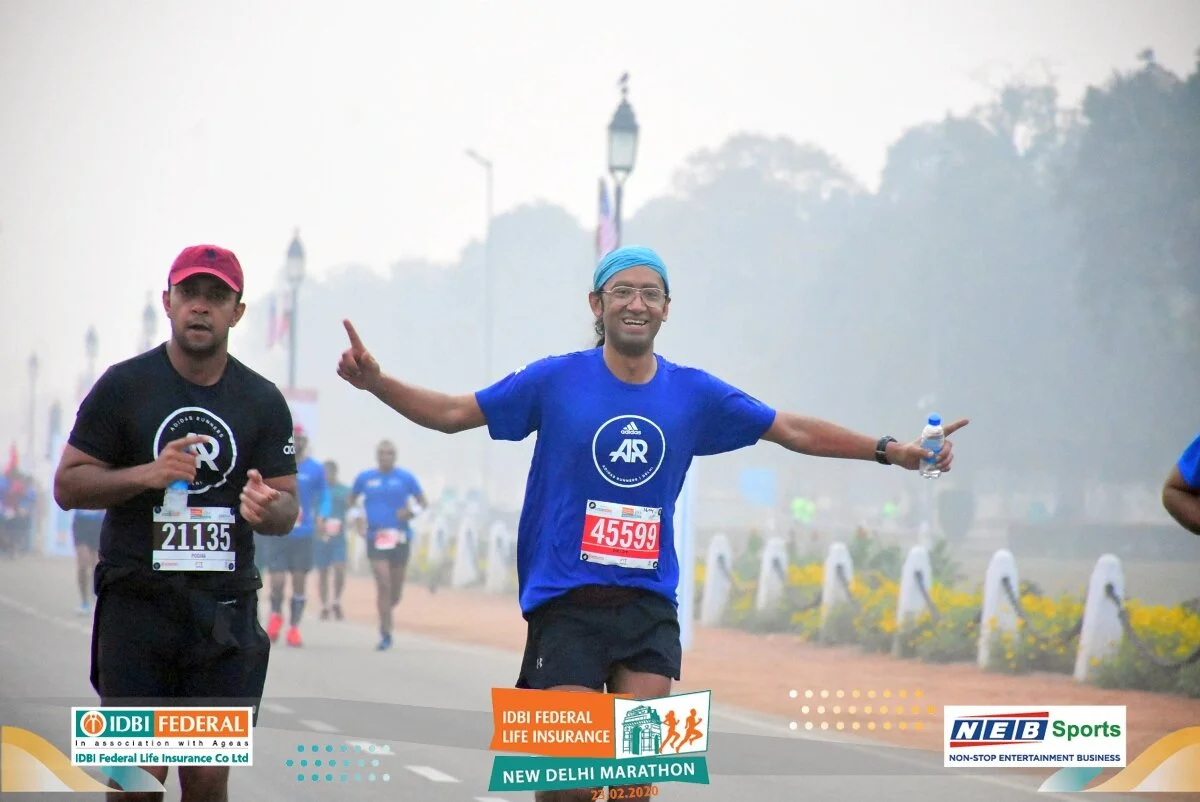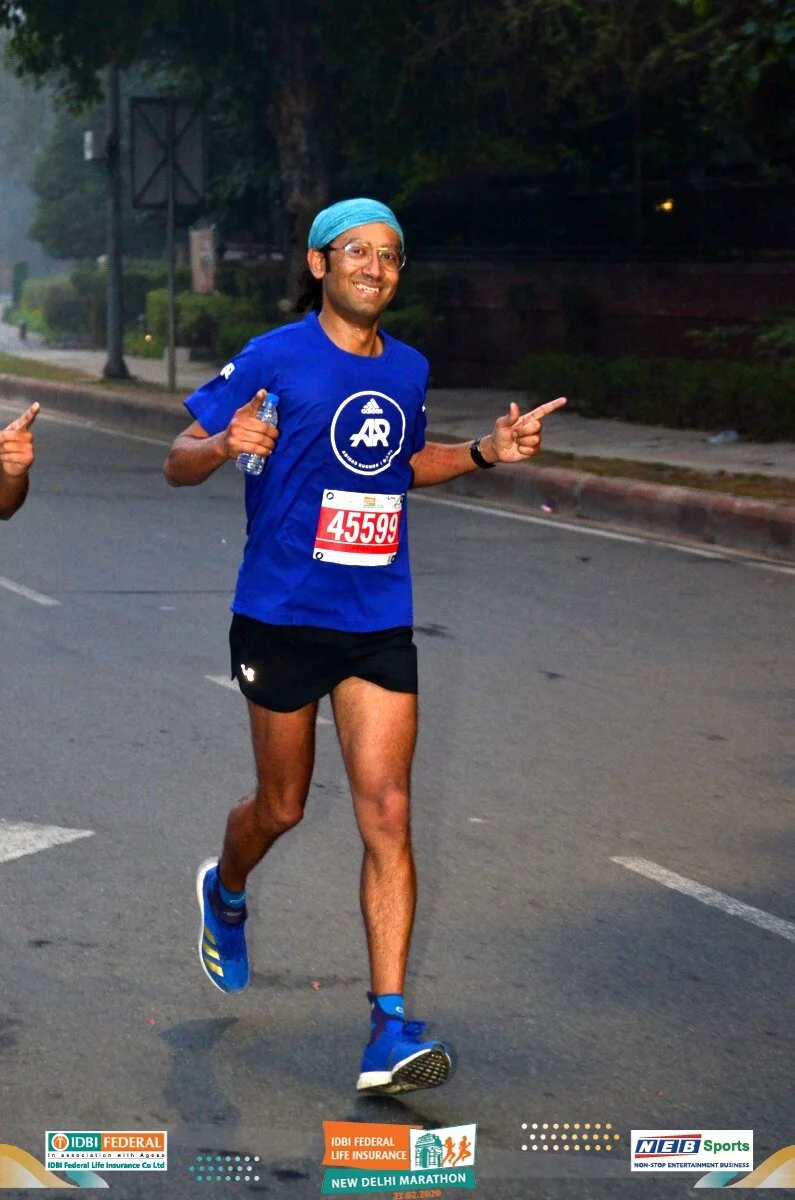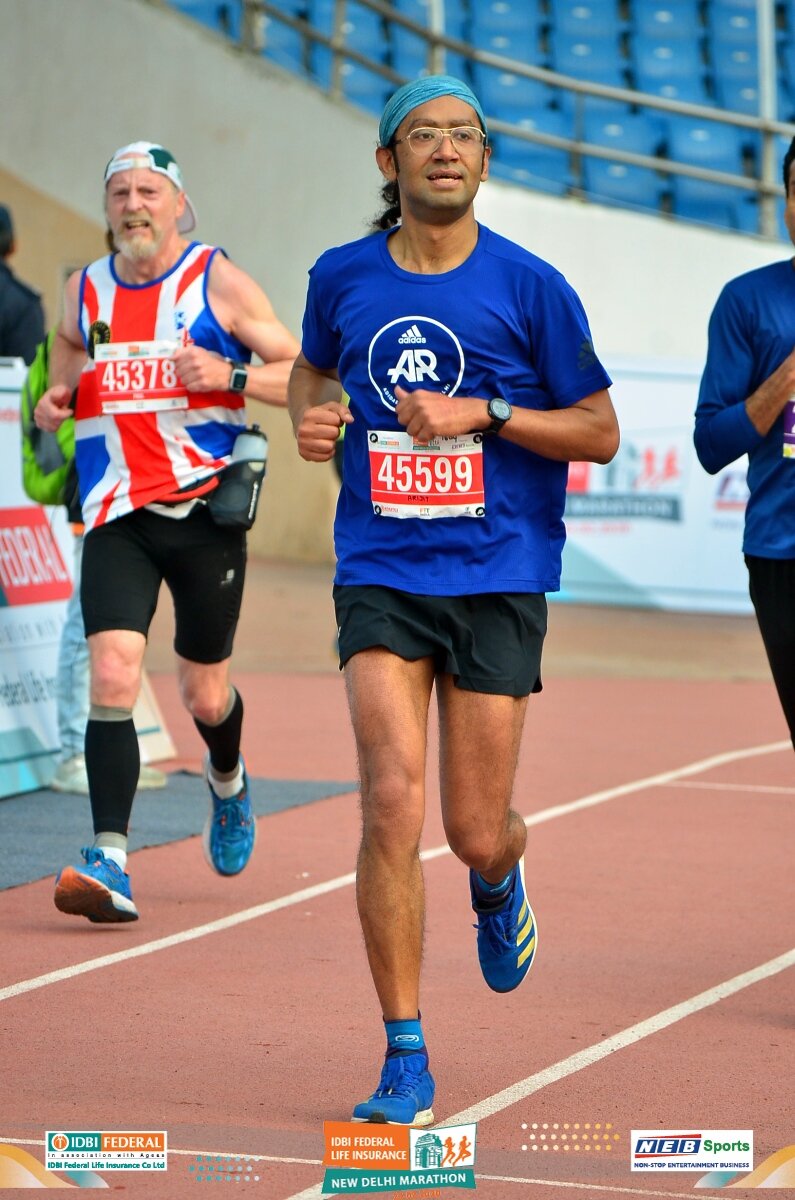Running a marathon - all 42.2. km of it is not easy. It’s not meant to be easy. You can definitely ease the pain and have an enjoyable race day, though. Arijit Ganguly, newly minted marathoner from the FitRabbits running team shares his journey.
After actively running for almost 3 years (~600 kms in 2017, ~800 kms in 2018, ~600 kms in the first half of 2019) including 9 Half Marathons, I finally decided to take the giant leap and train for a marathon. Initially, I didn’t have a specific race in mind but as per the timelines, a Q1 2020 race was something I was looking for. Luck happened and I was selected on the ballot for the only WMM Major in APAC, the Tokyo Marathon! I had 5 months to prepare. However, I was diagnosed with Dengue that took most of November from me. It then left me with 13 weeks before race day.
2 weeks before I toed my first marathon start line, organisers cancelled the Tokyo Marathon for amateur runners due to the uncontrolled spread of Coronavirus. Yes, it was heartbreaking but I was super lucky to have the IDBI New Delhi Marathon in a week's time. The only hitch for me to consider - do I have enough time to taper? - only 1 week between a 65 KM week (45 KM weekend) and race day. A quick call with the coach and we decided to take the calculated risk - Game On!
I finished my first marathon with a timing of 3:56:47. It was a dream debut and I can’t think of anything that could have gone better. Here are 5 things that I learnt from this journey of becoming a marathoner.
1. Give yourself at least 14 weeks and stick to the training plan. There is no short cut here. You can find multiple training plans online or you can train under a coach as I did and I will tell you why.
Running for 60-80 kms a week takes a heavy toll on your body and it’s key that you train and then cross the 42.195 finish line without an injury.
This is where a coach adds a lot of value - tweak the plan based on improvement in performance, pains and injuries during the training cycle, prioritize areas that need more focus than others - can be running form, cadence, speed etc.
On Rajpath, more than half way done!
2. Good sleep is super important and underestimated. There were days when I had to pick between running and sleeping and I would pick sleeping to ensure I am getting enough rest and then distributed some of the distance to the rest of the running days to maintain the mileage (after consulting with coach).
The importance of sleep is even more in the week before the race. You trained hard, got all the mileage to back you - now all you need is a fresh pair of legs that have just recovered from the crazy mileage. Most Garmin watches let you track your sleep.
I slept 9h on Thursday night, 7.5h on Friday night and 5h on Saturday night (the race started at 4 am so I had to wake up at 2 AM).
Image: Me in Blue, Shantanu (pacing me on the left)
3. Start slow and ensure you have enough left in you to be able to perform better in the second half. My target race pace was 5:37 min per km for a 3h57min finish.
I started at a pace of 6 min per km for the first 3 km to get into the rhythm, warm up properly and settle into a mental state that this will now go on for almost 40 kms and 4 hours!
One of the things from the race that made me really happy was being able to do a negative split - that too by more than 8 minutes. (First half 2:02:27 second half 1:54:20 - this was about 3 minutes faster than by Half Marathon Personal Best)
There will be times in the first half that you will feel you can run faster - save that oomph for the second half! Luckily a friend agreed to pace me for the 2nd half and I remember him telling me how amazing it is to increase pace at the time everyone else is slowing down. It’s an unbelievable high!
Last 6 km to go!
4. Mastering the psychology of “Mind over muscle”. This has been explained in the book How Bad Do you Want It by Matt Fitzgerald. I spent 30 minutes reading some key pages during the last week before going to sleep.
In a nutshell, it explains that one cannot improve as an endurance athlete except by changing one’s relationship with perception of effort.
Hard physical limits exist but almost no athlete ever reaches them because the purely psychological limit of perceived effort tolerance is already encountered first. The slowing down, in most cases is not mechanistic, but voluntary!
Last 50 metres. Sprinting to the finish!
5. Have at least one training run simulating the race day gel plan (and salt capsules if it’s part of your plan) - most likely it will be the longest of your training runs. Replicate the scenario that you will have on the race day - carry the waist pouch/ hydration pack/ water bottle you plan to have during the race day.
I have seen a lot of runners not feeling comfortable/ sometimes with nausea when they consume the 4th/ 5th gel on the race day.
Plan the gel as per the water stops. I took gels at 8K, 16K, 24K, 32K and 39K and salt caps at 10K, 20K, 30K.
Next up, Berlin Marathon 2020.
Please share any takeaways from your marathon experience!
Thank you, Ari for sharing your experiences! So proud to have been part of your journey.
2020 Run Like A Rabbit coaching plans - few slots available!



